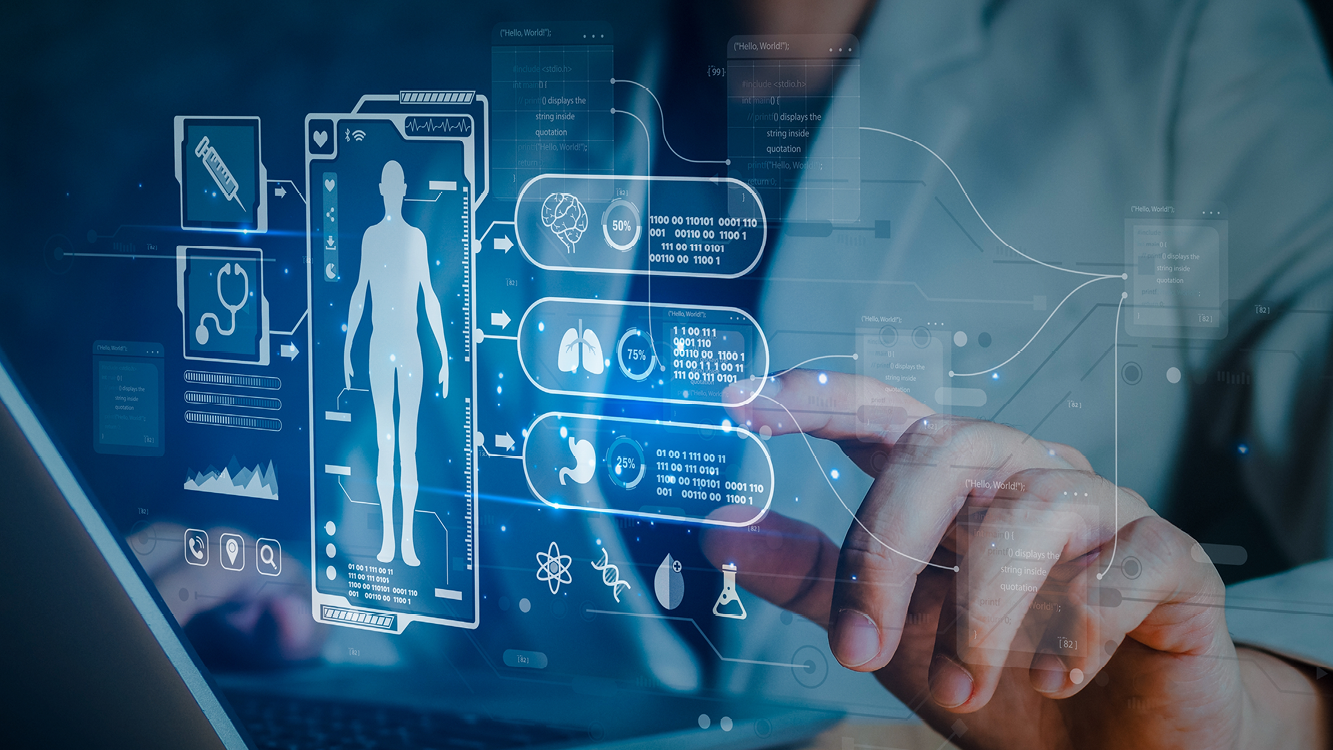5 Technologies Making Hospitals and Healthcare Smarter
Take the opportunity to provide solutions that give healthcare organizations access to information and allow them to save time and enhance the...
BlueStar's diverse portfolio offers unparalleled access to premium products and services that drive business growth and success. From state-of-the-art hardware to advanced software solutions, our portfolio is designed to empower businesses with the tools they need to thrive in today's competitive landscape.
Our vertical-based content focuses on different industry technologies, solutions, and insights.
A true VAD offers top-notch pick, pack and ship services, and provides programs and services that add value to the distributed products that increase their value or worth.
The BlueStar Difference2 min read
BlueStar April 23, 2024 4:10:12 AM EDT

Healthcare decision-making must be data-based, and AI provides the tools for fast, accurate insight delivery
Artificial intelligence (AI) is making its mark in healthcare and life sciences. In a significant shift, medical professionals are increasingly adopting AI solutions to enhance their ability to analyse complex data, make accurate diagnoses, and treat patients. In fact, analysts predict the global generative AI in the healthcare market alone, valued at USD 1.6 billion in 2022, will hit USD 30.4 billion by 2032, growing at a 34.9 per cent CAGR.
Although the healthcare industry continues to be risk-averse when it comes to automating processes with technology, AI is proving its value in certain areas to assist life sciences companies and healthcare providers and help them perform their jobs more effectively and efficiently. Technology solutions providers (TSPs) should focus on providing solutions with these capabilities, which have captured the attention of healthcare and life sciences provider prospects.
Diagnosing and Treating Illness
One significant area of AI use in healthcare concerns bedside care. For example, nurses can use handheld mobile devices with AI to analyze a patient's vital signs, medications, and medical history in real-time. This allows for quicker identification of potential problems and faster intervention.
Mobile computer cameras can be used to capture medical images like skin lesions or diabetic foot ulcers. AI algorithms can then analyze these images to assist healthcare providers in diagnosing conditions or flagging suspicious findings for further investigation.
AI also provides precision in detecting subtle patterns in data and finding anomalies in scans to increase the accuracy of diagnosis. In some cases, using AI to analyse radiological images or data reduces diagnostic errors, by quantifying specific characteristics, eliminating any subjective analysis. In fact, researchers have determined that AI can match or, in some cases, exceed human performance in some tasks, for example, classifying skin cancers. AI is also beneficial as support for medical imaging analysis, using deep learning to interpret images from X-rays, MRIs, and CT scans.
Bringing New Treatments to Patients
With cancer research and innovation a high priority, projects are leveraging AI to improve cancer care and patient quality of life. EU researchers are working to develop an open platform for immunotherapy and to provide early diagnosis, forecast disease trajectories, and other intelligent interventions focusing on breast and prostate cancer. Another project aims to integrate genomics and imaging phenomics using AI with the goal of improving outcomes in pancreatic cancer.
In the Netherlands, the collaborative NextGen project, funded by a Horizon Europe grant, plans to integrate genetic and health information from a variety of data sources. Using the power of AI, they seek to identify new treatment and prevention strategies for cardiovascular disease.
Summarising Research
The European Research Council (ERC) reported in 2023 that ERC-funded researchers are using AI in their scientific work. Life sciences researchers harness AI to analyse large volumes of images and datasets, including genomic and epigenomic data, and to predict diagnoses or outcomes. AI can find complex patterns, make comparisons, generate simulations, and predict properties for example, of protein sequences.
By utilising AI’s exceptional ability to analyse vast amounts of data with remarkable speed, medical researchers can easily find information specific to their study topic. Additionally, large language models (LLMs) give solutions natural language processing (NLP) capabilities. Users ask a question, for example, regarding a cause and effect, and the tool analyses, summarises, and extracts key information, then provides a conclusion based on the results of studies related to the topic of the query. These solutions put information and research results at the healthcare provider’s fingertips, with no need to wait for assistance from the IT or data team. Any professional in the organisation can easily access the data and insights they need.
How Will Your Business Make an Impact with AI?
AI solutions in healthcare are in their infancy, but the technology is poised to revolutionise healthcare, providing researchers and clinicians with innovative tools that make data access and analysis easier and ultimately, improve patient care.
TSPs who develop AI expertise, understand how it can provide value in various healthcare use cases, and can successfully implement solutions will also experience positive changes in the future. Start now to build an AI solutions practice to expand your business.

Take the opportunity to provide solutions that give healthcare organizations access to information and allow them to save time and enhance the...

Engaging patients and providing care digitally requires new technology. Meet the demand.

Learn how BlueStar bridges ISV innovation and TSP implementation to transform EMEA care delivery.